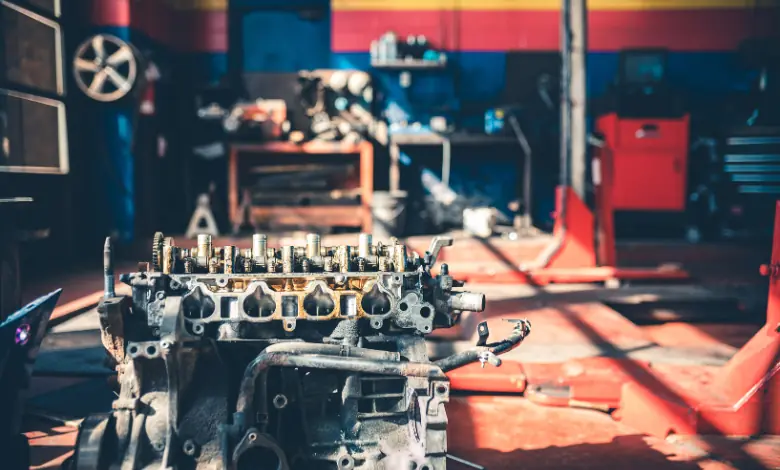Tips for Setting Up Your Own Mechanic Business in 2024

Launching your mechanic business is an exciting time that allows you to channel your passion for automotive repair into a thriving venture. As we approach 2024, the automotive industry continues to evolve, presenting both challenges and opportunities for aspiring entrepreneurs.
To help you succeed next year and beyond, this guide provides valuable tips and insights on how to successfully set up your own mechanic business.
Thorough Market Research
Before diving headfirst into the mechanic business, conduct comprehensive market research. Understand your target audience, competition, and the specific needs of your local community. Identify gaps in services or niches that you can fill with your expertise. Craft a detailed business plan that outlines your business goals, strategies, and financial projections. A well-thought-out plan serves as your roadmap and can also be essential when seeking financing or investors.
Location Matters
Selecting the right location is crucial for the success of your mechanic business. Choose a location with visibility, accessibility, and ample space for your equipment and customers’ vehicles. Consider proximity to residential areas or commercial centers for a steady flow of potential clients.
Legal and Regulatory Compliance
Ensure you comply with all legal and regulatory requirements for starting and operating a mechanic business in your area. This includes obtaining the necessary licenses, permits, and insurance coverage.
Investment in Quality Equipment
You’ll also need to invest in high-quality tools and equipment. Cutting corners on your equipment can lead to inefficiencies and customer dissatisfaction. Quality tools are not only more reliable but also ensure safety and accuracy in your work. There’s a long list of items you might need in your business, but some of the top ones include:
- A comprehensive set of wrenches, including combination, socket, and adjustable wrenches, is essential for various tasks.
- High-quality socket sets with a variety of sizes and types are indispensable for fastening and loosening nuts and bolts.
- A range of screwdrivers, including flathead and Phillips-head, in various sizes, is necessary for a wide array of applications.
- You’ll want various types of pliers, such as needle-nose, locking, and slip-joint pliers, for gripping, cutting, and bending.
- Air or electric impact wrenches and drivers provide high torque for stubborn fasteners.
- High-quality diagnostic tools, such as OBD-II scanners and multimeters, aid in pinpointing vehicle issues accurately.
- Depending on your specialization, you might acquire specialty tools such as a quality pickle fork tool, inspection camera, retriever claw, pulley puller, magnetic pickup tool, punches and chisels, funnel set, and more.
- A hydraulic floor jack and sturdy jack stands are crucial for safely lifting and supporting vehicles during repairs.
- If your budget and space allow, consider vehicle lifts for convenient access to the underside of vehicles.
Skilled Workforce
If there’s enough demand, hire skilled mechanics with experience and relevant certifications to help you cater to customers. A knowledgeable team is your greatest asset, providing quality service and building trust with your customers.
Marketing and Branding
Develop a cohesive branding strategy that sets your mechanic business apart from the competition. Invest in marketing efforts that resonate with your target audience. Utilize both traditional and digital marketing channels to reach potential customers.
Establish a Strong Online Presence
In the digital age, having a strong online presence is vital for attracting and retaining customers. Create a professional website, maintain active social media profiles, and encourage customers to leave reviews. Consider offering online booking and appointment scheduling for convenience.
Customer Service Excellence
Exceptional customer service is the cornerstone of a successful mechanic business. Train your staff to communicate effectively with customers, provide accurate estimates, and offer transparent explanations of repair recommendations. A satisfied customer is likely to become a loyal one and refer your services to others.
Efficient Inventory Management
Keep a close eye on your inventory of spare parts and materials. Efficient inventory management ensures you have the necessary components on hand for timely repairs and reduces the risk of overstocking or understocking.
Embrace Technology
Stay updated with the latest automotive diagnostic and repair technology. Invest in software that streamlines your operations, manages appointments, and tracks customer histories. Technology can enhance efficiency and customer satisfaction.
Networking and Partnerships
Build relationships with local auto dealerships, towing services, and parts suppliers. Networking can lead to referrals and mutually beneficial partnerships that expand your customer base.
Financial Management
Maintain meticulous financial records and budgets. Effective financial management is essential for the long-term sustainability of your mechanic business. Seek advice from financial experts if needed, too.
Setting up your own mechanic business in 2024 presents many opportunities in the ever-evolving automotive industry. By following these tips and embracing the dynamics of the automotive world, you can build a thriving and reputable mechanic business that serves your community and fulfills your entrepreneurial aspirations.






